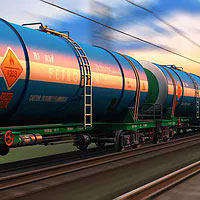Refineries today face many challenges. One challenge is to remain profitable while producing high-quality products and meeting demand on a tight schedule. Often, refiners must decide how to maximize one product at the expense of another to maintain acceptable refining margins.
Chemical additives play an important role in offering refiners maximum flexibility. In fact, modern refineries are finding the use of additives inevitable. Additives can also provide new options in a refinery’s capital investment decisions. An expensive hardware upgrade may be deferred if there is an alternative temporary chemical solution.
Cestoil Chemical excels at working with refineries to solve their most complex problems. We understand the fuels market and the needs of each refinery. Our services are not limited to solving fuel quality problems. We also offer specific recommendations for refinery profit enhancements through the use of our fuel additives.













